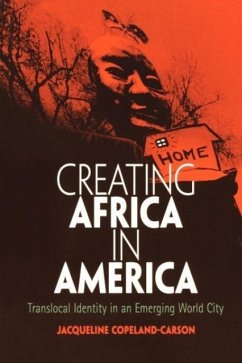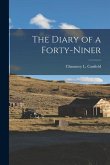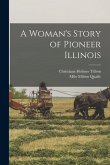Creating Africa in America Translocal Identity in an Emerging World City Jacqueline Copeland-Carson "'Who is 'African' in a global ecumene? Anthropologist Copeland Carson poses this challenging question in her study of cultural dynamics in Minneapolis-Saint Paul. . . . Highly recommended."--Choice With a booming economy that afforded numerous opportunities for immigrants throughout the 1990s, the Twin Cities area has attracted people of African descent from throughout the United States and the world and is fast becoming a transnational metropolis. Minnesota's largest urban area, the region now also has the country's most diverse black population. A closely drawn ethnography, Creating Africa in America: Translocal Identity in an Emerging World City seeks to understand and evaluate the process of identity formation in the context of globalization in a way that is also site specific. Bringing to this study a rich and interesting professional history and expertise, Jacqueline Copeland-Carson focuses on a Minneapolis-based nonprofit, the Cultural Wellness Center, which combines different ethnic approaches to bodily health and community well-being as the basis for a shared, translocal "African" culture. The book explores how the body can become a surrogate locus for identity, thus displacing territory as the key referent for organizing and experiencing African diasporan diversity. Showing how alternatives are created to mainstream majority and Afrocentric approaches to identity, she addresses the way that bridges can be built in the African diaspora among different African immigrant, African American, and other groups. As this thoughtful and compassionate ethnographic study shows, the fact that there is no simple and concrete way to define how one can be African in contemporary America reflects the tangled nature of cultural processes and social relations at large. Copeland-Carson demonstrates the cultural creativity and social dexterity of people living in an urban setting, and suggests that anthropologists give more attention to the role of the nonprofit sector as a forum for creating community and identity throughout African diasporan history in the United States. Jacqueline Copeland-Carson is a senior fellow with the Roy Wilkins Center of the Hubert H. Humphrey School of Public Affairs at the University of Minnesota. Contemporary Ethnography 2004 256 pages 6 1/8 x 9 1/4 17 illus. ISBN 978-0-8122-3790-0 Cloth $69.95s £45.50 ISBN 978-0-8122-1876-3 Paper $27.50s £18.00 World Rights Anthropology, African-American/African Studies Short copy: "'Who is 'African' in a global ecumene? Anthropologist Copeland Carson poses this challenging question in her study of cultural dynamics in Minneapolis-Saint Paul. . . . Highly recommended."--Choice
Hinweis: Dieser Artikel kann nur an eine deutsche Lieferadresse ausgeliefert werden.
Hinweis: Dieser Artikel kann nur an eine deutsche Lieferadresse ausgeliefert werden.








